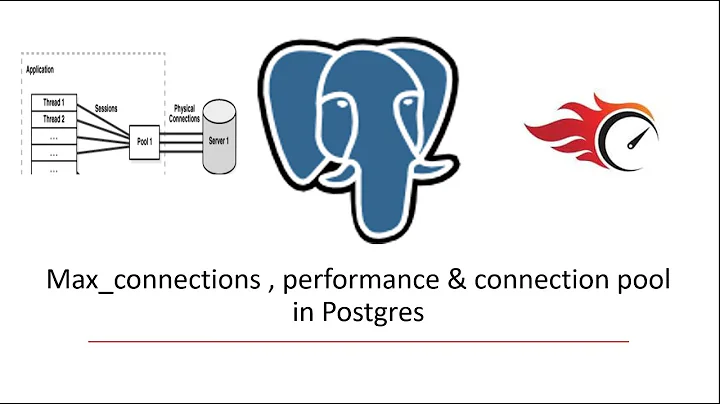Connection Pool for rails 5
Solution 1
In all rails versions I had used connection pool configured in config/database.yml
development:
adapter: sqlite3
database: db/development.sqlite3
pool: 5
timeout: 5000
So just increase it:
development:
adapter: sqlite3
database: db/development.sqlite3
pool: 10
timeout: 5000
Let me know if it will be helpful.
UPDATE
It seems it's not so straightforward to put your values to environment/*.rb files. The closest way IMHO is to use ENV variables as @Alessandro Caetano suggests.
Community has a gem for such operations: rais-dotenv
You could just create .env.* files for each environment and then dotenv will load it accordingly.
Here is an example:
# .env.development
main_db_database=main_db_development
main_db_pool=5
main_db_host=localhost
main_db_port=3306
main_db_user=user
main_db_password=password
Then in your database.tml
development: &main_db
adapter: mysql2
encoding: utf8
reconnect: true
database: <%= ENV['main_db_database'] %>
pool: <%= ENV['main_db_pool'] ? ENV['main_db_pool'].to_i : 5 %>
host: <%= ENV['main_db_host'] %>
port: <%= ENV['main_db_port'] %>
username: <%= ENV['main_db_username'] %>
password: <%= ENV['main_db_password'] %>
Solution 2
You can set the connection pool limit in your config/database.yml, like this:
production:
url: <%= ENV["DATABASE_URL"] %>
pool: <%= ENV["DB_POOL"] || ENV['RAILS_MAX_THREADS'] || 5 %>
Related videos on Youtube
Comments
-
sethi 3 months
I am having this issue with rails 5 rc1. Does anyone have any idea how to configure it in the environment files and what is the default connection pool size for rails 5 active record.
Puma caught this error: could not obtain a connection from the pool within 5.000 seconds (waited 5.000 seconds); all pooled connections were in use (ActiveRecord::ConnectionTimeoutError) /home/bsethi/.rvm/gems/ruby-2.2.2/gems/activerecord-5.0.0.rc1/lib/active_record/connection_adapters/abstract/connection_pool.rb:202:in `block in wait_poll' /home/bsethi/.rvm/gems/ruby-2.2.2/gems/activerecord-5.0.0.rc1/lib/active_record/connection_adapters/abstract/connection_pool.rb:193:in `loop' /home/bsethi/.rvm/gems/ruby-2.2.2/gems/activerecord-5.0.0.rc1/lib/active_record/connection_adapters/abstract/connection_pool.rb:193:in `wait_poll' /home/bsethi/.rvm/gems/ruby-2.2.2/gems/activerecord-5.0.0.rc1/lib/active_record/connection_adapters/abstract/connection_pool.rb:154:in `internal_poll' /home/bsethi/.rvm/gems/ruby-2.2.2/gems/activerecord-5.0.0.rc1/lib/active_record/connection_adapters/abstract/connection_pool.rb:278:in `internal_poll' /home/bsethi/.rvm/gems/ruby-2.2.2/gems/activerecord-5.0.0.rc1/lib/active_record/connection_adapters/abstract/connection_pool.rb:148:in `block in poll' -
 typeoneerror over 5 years
typeoneerror over 5 years.to_idoesn't appear to be necessary on the pool size github.com/rails/rails/blob/4-2-stable/activerecord/lib/… -
 Nicolas Guillaume about 4 yearsDo you just add
Nicolas Guillaume about 4 yearsDo you just addENV["DB_POOL"] = xto the boot.rb file? -
 alessandrocb about 4 years@NicolasGuillaume you can set these variables on your
alessandrocb about 4 years@NicolasGuillaume you can set these variables on your~/.bashrcfile usingexport DB_POOL = 5and so on. After that, you need tosource ~/.bashrcto apply the changes to your current terminal session or open a new terminal, then your rails app should be able to recognize the environment variable. If you don't like putting enviroment variables on your bashrc, you can use a gem, as @retgoat sugests. -
whodini9 about 4 yearsYou can also use github.com/laserlemon/figaro which stores unique environment variables in
config/application.ymland can raise errors if variables are missing.

